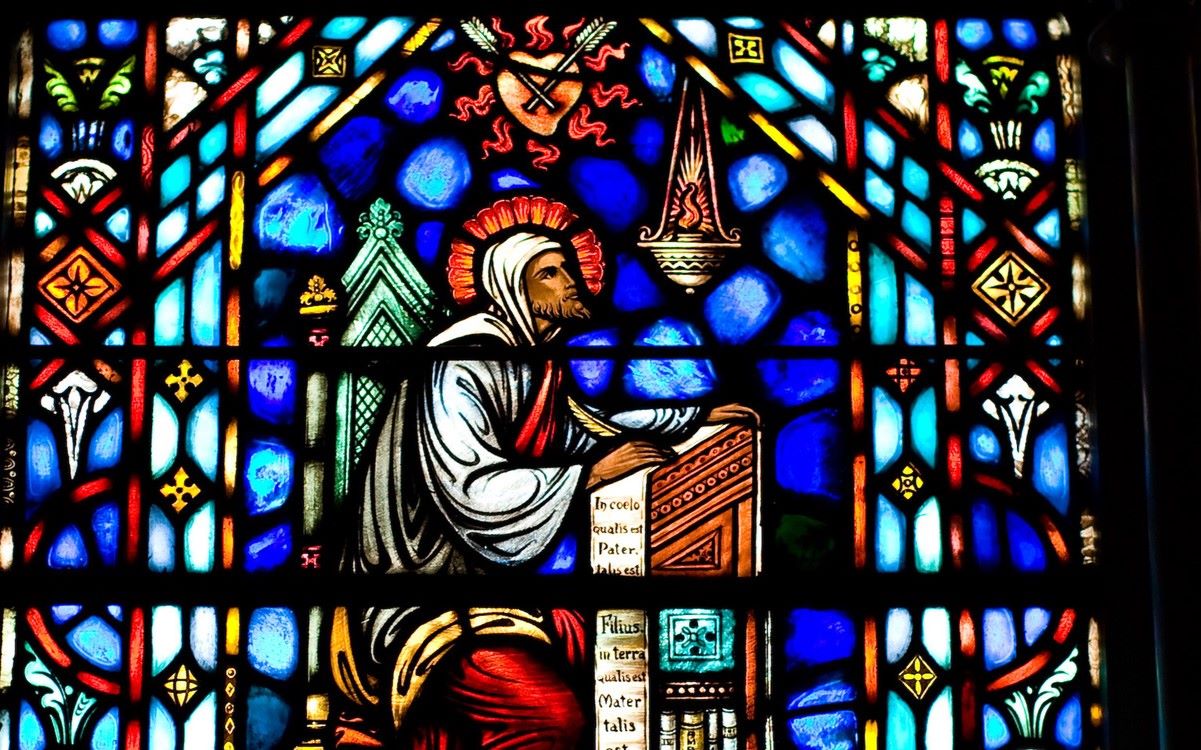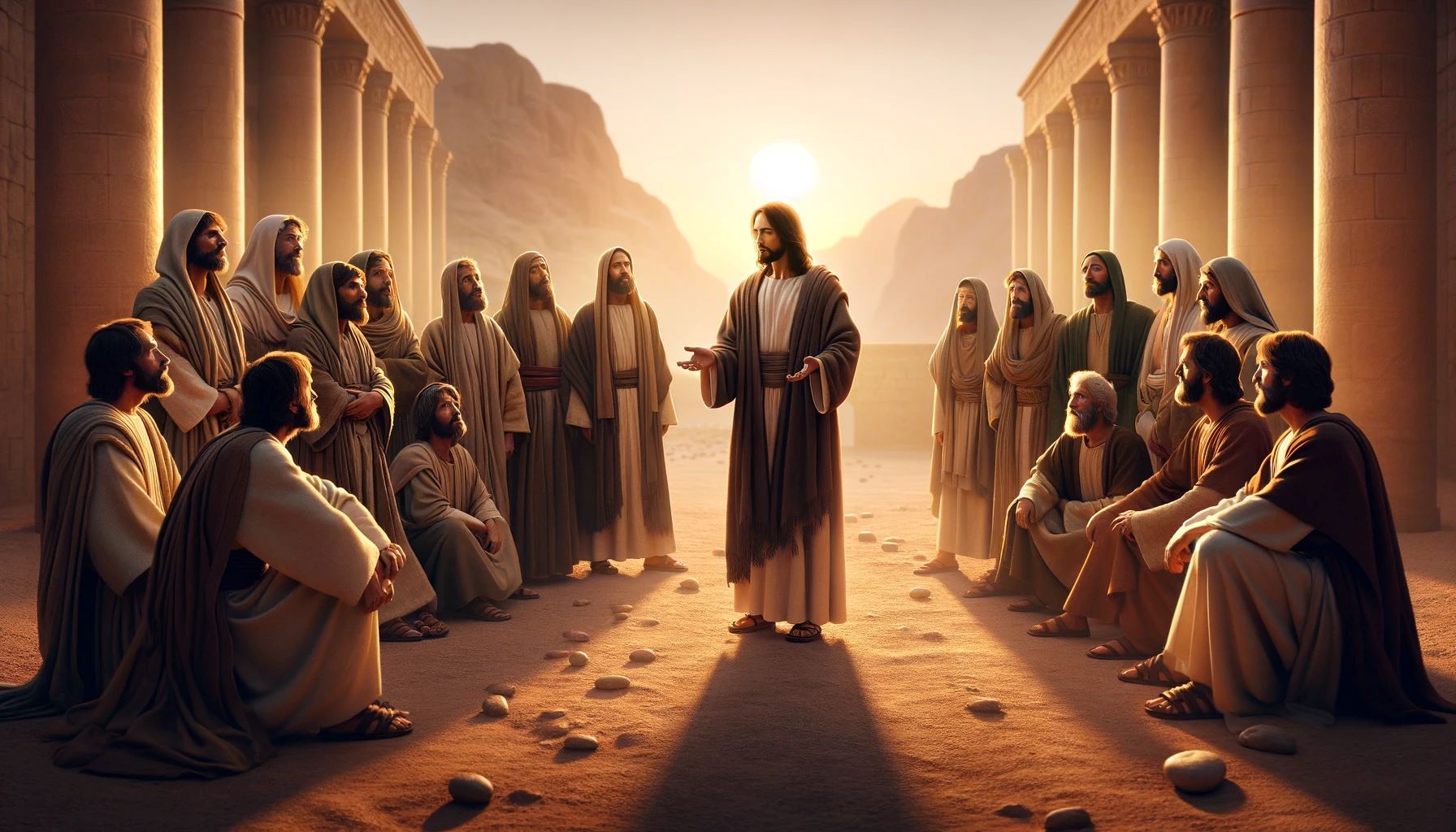Home>Theology and Spirituality>Why Was Augustine Important


Theology and Spirituality
Why Was Augustine Important
Published: February 10, 2024
Jason DeRose, Managing Editor at Christian.net, uses his expertise in religion and journalism to deepen understanding of faith's societal impacts. His editorial leadership, coupled with a strong academic background, enriches the platform’s diverse content, earning him recognition in both journalism and religious circles.
Discover why Augustine was a pivotal figure in theology and spirituality. Explore his impact on Christian thought and his enduring influence.
(Many of the links in this article redirect to a specific reviewed product. Your purchase of these products through affiliate links helps to generate commission for Christian.net, at no extra cost. Learn more)
Table of Contents
Introduction
Augustine of Hippo, also known as Saint Augustine, stands as one of the most influential figures in the history of Christianity. His profound impact on theology, philosophy, and spirituality reverberates through the centuries, shaping the beliefs and practices of countless individuals. Born in 354 AD in the North African town of Thagaste, Augustine's journey from a precocious youth to a revered theologian is a testament to the transformative power of faith and intellect.
The life and writings of Augustine continue to inspire and challenge believers and scholars alike. His exploration of complex theological concepts and his deep introspection on the human condition have left an indelible mark on Christian thought. As we delve into the multifaceted legacy of Augustine, we will uncover the pivotal moments of his life, the profound theological contributions he made, and the enduring influence he exerted on Western Christianity. Join me on this enlightening journey through the life and impact of Augustine of Hippo.
Read more: Why Is Atonement Important In Christianity
Early Life and Conversion
Augustine of Hippo's early life was marked by a blend of intellectual curiosity and spiritual yearning. Born to a pagan father, Patricius, and a devout Christian mother, Monica, Augustine's upbringing was steeped in contrasting influences. His mother's unwavering faith and fervent prayers would later become a source of solace and inspiration for Augustine, especially during his tumultuous journey towards conversion.
As a young man, Augustine pursued education with fervor, displaying exceptional intellectual prowess. His pursuit of knowledge led him to Carthage, where he delved into the study of rhetoric and philosophy. It was during this time that he encountered the teachings of the Manichaean religion, which initially captivated his inquisitive mind. The allure of Manichaeism, with its promise of esoteric wisdom, momentarily enticed Augustine, leading him to embrace its beliefs.
However, Augustine's intellectual odyssey did not culminate in spiritual fulfillment. His relentless quest for truth and meaning propelled him to explore various philosophical and religious doctrines, yet an enduring sense of restlessness persisted within him. It was amidst this inner turmoil that Augustine's encounter with the renowned bishop, Ambrose of Milan, proved to be a transformative catalyst.
The intellectual acumen and spiritual insight of Ambrose left an indelible impression on Augustine, igniting a profound inner struggle. Through their dialogues and Ambrose's eloquent exposition of Christian doctrine, Augustine's heart and mind underwent a profound metamorphosis. The seeds of faith, sown by his mother's prayers and nurtured by the guidance of Ambrose, began to germinate within Augustine's soul.
The pivotal moment of Augustine's conversion unfolded in a garden in Milan, where, in a state of profound anguish and spiritual yearning, he experienced a divine encounter. Overwhelmed by a flood of emotions and a deep sense of spiritual awakening, Augustine heard a child's voice urging him to "take up and read." Heeding this mysterious call, he opened the Scriptures and stumbled upon the words of St. Paul, which resonated with resounding clarity, piercing through the veils of doubt and uncertainty.
In that transcendent moment, Augustine's heart was illumined, and the shadows of skepticism and indecision dissipated. His conversion to Christianity marked a profound turning point, as he embraced the Christian faith with unwavering conviction and fervor. This transformative experience not only shaped the trajectory of Augustine's life but also laid the foundation for his enduring legacy as a theologian, philosopher, and spiritual luminary.
The profound impact of Augustine's conversion reverberates through the annals of Christian history, serving as a testament to the redemptive power of faith and the transformative potential inherent in the human spirit. His journey from intellectual skepticism to fervent faith stands as a timeless testament to the enduring allure of divine grace and the profound depths of spiritual metamorphosis.
Theological Contributions
Augustine of Hippo's theological contributions stand as a monumental edifice in the annals of Christian thought, shaping the contours of doctrine and theological inquiry for centuries to come. His profound insights and scholarly acumen permeate a myriad of theological themes, illuminating the complexities of faith, grace, sin, and the nature of God with unparalleled depth and clarity.
At the heart of Augustine's theological oeuvre lies his seminal work, "The Confessions," a profound introspective journey that intertwines autobiography with profound theological reflections. In this magnum opus, Augustine delves into the depths of the human soul, unraveling the intricacies of sin, redemption, and the ineffable yearning for divine communion. His candid exploration of his own spiritual odyssey serves as a timeless testament to the transformative power of grace and the perennial struggle between the flesh and the spirit.
Central to Augustine's theological framework is the concept of original sin, which posits that all of humanity inherits the taint of Adam's transgression, thus being inherently predisposed to sin. This foundational doctrine has profoundly influenced Christian soteriology and the understanding of human nature, underscoring the dire need for divine grace and redemption.
Moreover, Augustine's elucidation of the nature of God and the Trinity has left an indelible mark on Christian theology. His profound articulation of the triune God as a unity of three co-equal persons, Father, Son, and Holy Spirit, has significantly shaped the doctrinal formulations of the Trinity, serving as a cornerstone of orthodox Christian belief.
In his magisterial work, "The City of God," Augustine grapples with the profound theological implications of history, eschatology, and the nature of the earthly and heavenly cities. This monumental treatise not only addresses theodicy and the enduring struggle between good and evil but also provides a comprehensive vision of the divine plan unfolding amidst the vicissitudes of human history.
Furthermore, Augustine's profound exploration of predestination and divine sovereignty has engendered extensive theological discourse, igniting debates and inquiries into the interplay between God's foreknowledge and human agency. His nuanced reflections on the intertwining of divine grace and human will have profoundly influenced the contours of theological anthropology and the understanding of salvation.
In essence, Augustine's theological contributions resonate with enduring relevance, offering profound insights into the complexities of faith, the enigma of human nature, and the ineffable mysteries of divine providence. His profound intellectual legacy continues to inspire theologians, scholars, and seekers of truth, beckoning them to embark on a profound journey of theological inquiry and spiritual introspection.
Influence on Western Christianity
Augustine of Hippo's influence on Western Christianity transcends the boundaries of time and space, permeating the theological, philosophical, and spiritual tapestry of the Christian tradition. His profound impact reverberates through the corridors of ecclesiastical history, shaping the contours of Christian doctrine, spirituality, and intellectual inquiry.
One of the most enduring legacies of Augustine lies in his profound influence on the doctrine of original sin and the nature of human depravity. His articulation of the inherent fallenness of humanity and the dire need for divine grace has profoundly shaped Western Christian soteriology, underscoring the foundational understanding of the human condition and the redemptive work of Christ.
Moreover, Augustine's elucidation of the nature of God and the Trinity has left an indelible mark on Western Christian theology. His profound articulation of the triune God as a unity of three co-equal persons, Father, Son, and Holy Spirit, has significantly shaped the doctrinal formulations of the Trinity, serving as a cornerstone of orthodox Christian belief.
Furthermore, Augustine's profound exploration of predestination and divine sovereignty has engendered extensive theological discourse, igniting debates and inquiries into the interplay between God's foreknowledge and human agency. His nuanced reflections on the intertwining of divine grace and human will have profoundly influenced the contours of Western Christian theological anthropology and the understanding of salvation.
In addition, Augustine's magnum opus, "The City of God," stands as a monumental treatise that has profoundly influenced Western Christian eschatology and the understanding of the interplay between the earthly and heavenly realms. His profound reflections on the enduring struggle between the City of God and the City of Man have provided a comprehensive vision of the divine plan unfolding amidst the vicissitudes of human history, offering solace and guidance to generations of believers.
Furthermore, Augustine's profound impact on Western Christianity extends to the realms of spirituality and ecclesiastical practice. His emphasis on the primacy of divine grace, the transformative power of prayer, and the cultivation of a vibrant spiritual life continues to resonate with profound relevance, inspiring countless individuals to embark on a profound journey of faith and spiritual introspection.
In essence, Augustine's influence on Western Christianity stands as a testament to the enduring power of his theological insights and spiritual wisdom, shaping the beliefs, practices, and intellectual discourse of Western Christian tradition with timeless resonance and profound depth.
Legacy and Impact
Augustine of Hippo's enduring legacy and profound impact on the trajectory of Christian thought and spirituality resonate with timeless relevance, transcending the boundaries of epochs and cultures. His theological insights, philosophical acumen, and spiritual wisdom have left an indelible imprint on the tapestry of Western Christianity, shaping the beliefs, practices, and intellectual discourse of successive generations.
The legacy of Augustine permeates the annals of Christian theology, serving as a cornerstone of doctrinal formulations and theological inquiry. His profound articulation of original sin, divine grace, and the nature of God has engendered extensive theological discourse, igniting debates and inquiries into the complexities of human nature and the redemptive work of Christ. The enduring relevance of Augustine's theological contributions continues to inspire theologians, scholars, and seekers of truth, beckoning them to embark on a profound journey of theological inquiry and spiritual introspection.
Moreover, Augustine's impact extends beyond the realms of theology, permeating the spheres of philosophy, ethics, and the humanities. His profound reflections on the nature of the self, the enigma of time, and the pursuit of wisdom have reverberated through the corridors of philosophical inquiry, inspiring thinkers and scholars to grapple with the perennial questions of existence and human flourishing. The enduring relevance of Augustine's philosophical insights continues to illuminate the intellectual landscape, fostering a vibrant dialogue between faith and reason.
Furthermore, Augustine's legacy reverberates through the corridors of spirituality, inspiring countless individuals to embark on a profound journey of faith, introspection, and spiritual renewal. His emphasis on the primacy of divine grace, the transformative power of prayer, and the cultivation of a vibrant spiritual life continues to resonate with profound relevance, guiding seekers on the path of spiritual enlightenment and inner transformation.
The impact of Augustine's legacy extends to the realms of literature, art, and cultural discourse, permeating the collective consciousness with its profound resonance. His magnum opus, "The Confessions," stands as a timeless testament to the transformative power of grace and the perennial struggle between the flesh and the spirit, inspiring artists, writers, and creators to explore the depths of the human soul and the ineffable yearning for divine communion.
In essence, Augustine of Hippo's legacy and impact stand as a testament to the enduring power of his theological insights, philosophical acumen, and spiritual wisdom, shaping the beliefs, practices, and intellectual discourse of Western Christian tradition with timeless resonance and profound depth. His enduring legacy continues to inspire and challenge individuals to embark on a profound journey of faith, intellectual inquiry, and spiritual introspection, beckoning them to explore the depths of the human soul and the ineffable mysteries of divine providence.















